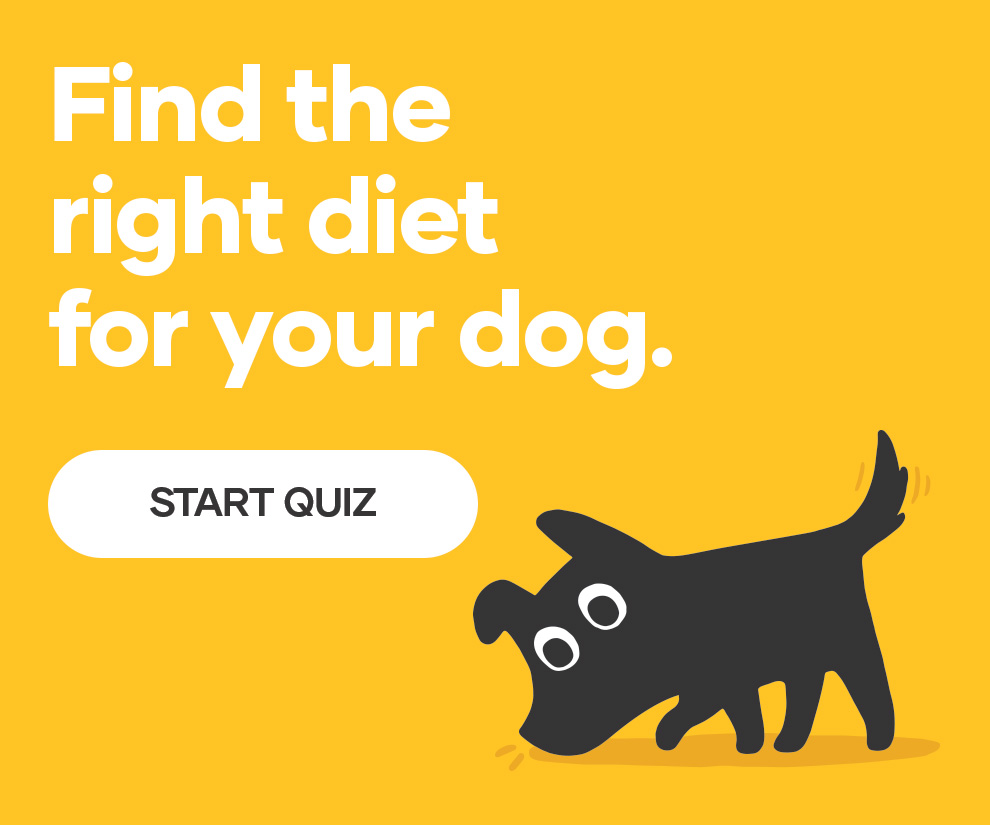When it comes to setting how often and how much you should feed your dog, it’s important to consider their age, breed, weight and individual energy levels.
Dogs are naturally gorge feeders with a very expandable stomach designed to cope with large meals. They are also opportunistic eaters who have evolved to obtain food by scavenging. Some adult dogs have adapted to eat one or two meals per day but many dogs have a tendency to eat any food provided, even if it is in excess of their requirements – so it’s best not to offer free access to food.
Is my dog getting the nutrients they need?
To maintain a healthy body weight and condition, you should feed your dog a nutritionally complete and balanced diet that is appropriate for their life stage, weight and energy needs. Use our Dog Food Finder Tool to discover which diets are recommended for your canine companion.
If a dog is fed a complete and balanced diet that is suited to their life stage and it is fed sufficiently to meet their energy needs, then the diet will also be providing the necessary nutrients required. Supplementing with other nutrients such as calcium is not only counterproductive but has been shown, amongst other factors, to contribute to joint issues in the growing dog.
Super premium food is scientifically developed to match your dog’s needs



How much should I be feeding my dog?
Check the recommended feeding guidelines
Each pet food product has individual feeding guides based on the weight of your dog as well as the calories provided by the food. This should be used as the starting point for estimating how much food to offer your dog. These feeding guides have been carefully calculated, but as the name suggests, they are simply a guide and the exact amount fed must be tailored to your pet’s individual exercise requirements.
Different dietary formats (for example canned and dry foods) have different energy densities, so it is important to weigh food and not estimate the quantity. Also remember that these feeding guides are determined based on daily servings so if you’re feeding your dog multiple times a day, remember to divide the amount of food you feed them each time accordingly.
Consider your dog’s unique characteristics
Factors including your dog’s size, breed, age and weight will determine how much your dog should be fed. Certain breeds, such as Kelpies and Australian Cattle Dogs have higher energy levels than Bansenjis and Chow Chows. This will impact the amount of food and calories these breeds should eat every day. Similarly, a toy breed, such as a Yorkshire Terrier will eat much less than a giant breed, such as a Saint Bernard. These factors should be taken into account when you select the type of dog food, but also when you work out the right amount for your dog.
How often should I be feeding my dog?
It is recommended that you feed your adult dog twice a day, once in the morning and again in the evening. If you wish to divide their daily food into 3-4 smaller meals, this is also acceptable. This way they have time to digest their food and keep their metabolic clock ticking over. Puppies should be fed more often using the following guide, or what has been recommended by your Greencross Vet.
What to do when you need to change things up
It’s important to regularly monitor your pet’s weight and body condition. If your dog’s weight becomes a concern, then don’t hesitate to book a weight management consultation at your local Greencross Vets where they will provide you with an achievable weight management program tailored to your dog’s unique needs. If you want to change your dog’s diet, be sure that you transition them slowly to avoid stomach upsets.
How should I factor in treats?
Dog treats must be accounted for within your pet’s daily calorie intake and, as a general rule, should not make up more than 10% of their daily energy requirements. Feeding them scraps can also be harmful. Water is life’s most essential nutrient, so be sure to offer your dog access to fresh, clean drinking water at all times.



For individualised advice on your dog’s diet, feel free to chat with your local Petbarn team member.




